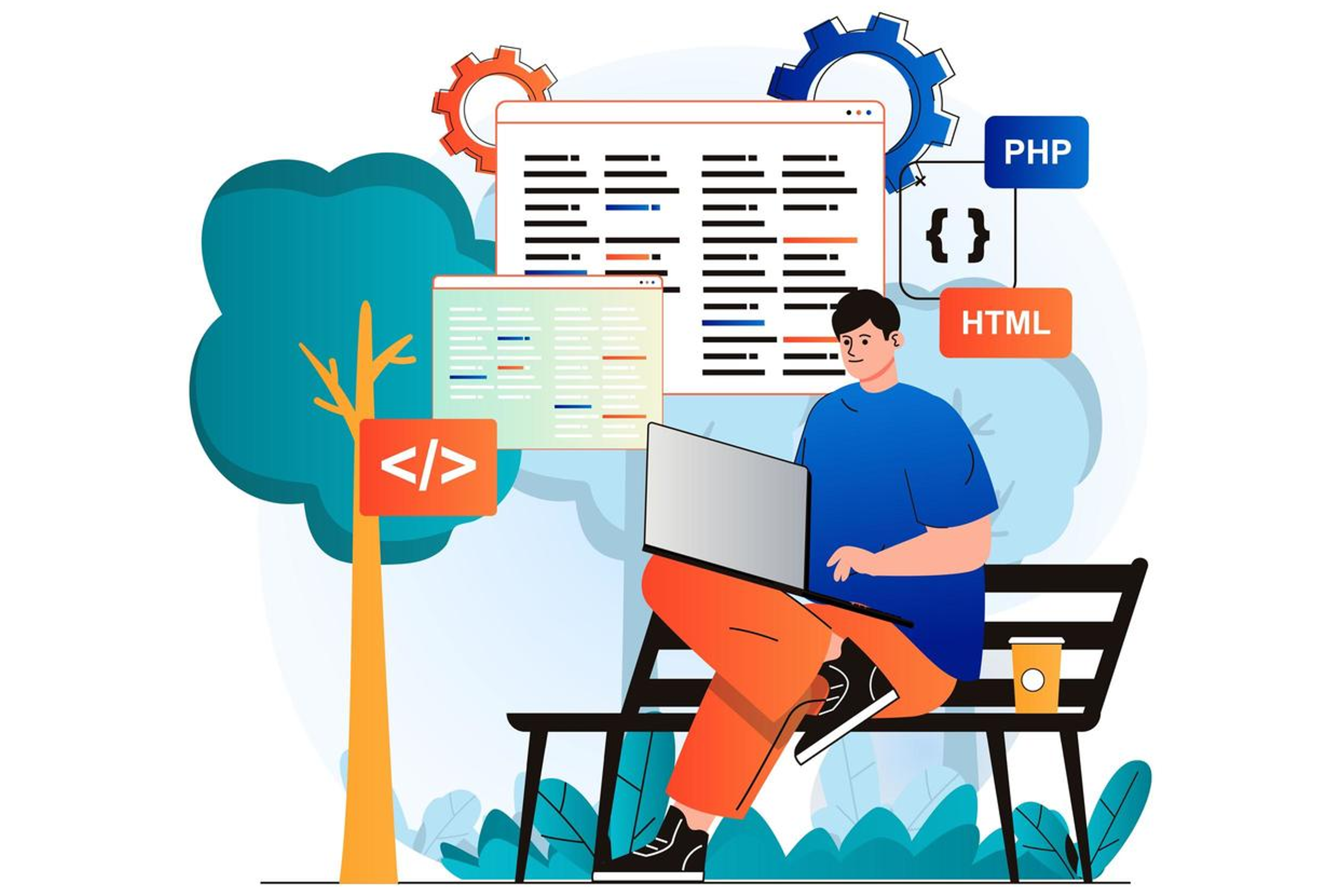The digital age has ushered in a transformative shift in how we work, notably for those in the tech industry.
At the heart of this transformation is the freelance revolution, a movement that has made coding for the gig economy not just a possibility, but a thriving and vibrant career choice. As we delve into this new era of work, it’s crucial to understand both the boundless opportunities and the unique challenges it presents.
The Allure of Freelance Coding
In a world where technology is ever-evolving, the demand for skilled coders has never been higher. Freelance coding offers a gateway to a diverse array of projects, from developing cutting-edge apps to building dynamic websites. But what sets freelance coding apart in the gig economy?
Why Choose Freelance Coding?
Coding is uniquely suited to the gig economy for several reasons. Its digital nature eliminates geographical barriers, allowing coders to work from anywhere in the world. Moreover, the project-based nature of coding work aligns perfectly with freelance work’s flexibility and variety.
Navigating the Gig Economy Landscape
The freelance coding journey is filled with opportunities for growth, learning, and personal freedom. However, it’s not without its challenges. Understanding these aspects is essential for anyone looking to navigate this path successfully.
The Bright Side: Opportunities Abound
Freelance coding offers unparalleled flexibility and the chance to be your boss. You can:
- Choose projects that match your passion and skill set.
- Work with clients from diverse industries and backgrounds.
- Enjoy the freedom to set your schedule and work from anywhere.
The Flip Side: Challenges to Overcome

Yet, the freelance path also demands a high level of self-discipline, proactive learning, and adaptability. Freelancers face:
- The uncertainty of fluctuating income and project availability.
- The need for continuous skill development to stay relevant in a competitive market.
- The challenge of managing all aspects of their freelance business, from marketing to accounting.
Building a Foundation for Success
Success in freelance coding doesn’t come by chance. It requires deliberate effort, strategic planning, and a commitment to continuous improvement. Here are some foundational steps to help you build a thriving freelance coding career:
- Develop a Strong Online Presence: Your portfolio is your resume. Showcase your projects on platforms like GitHub, and use LinkedIn to network with potential clients and fellow coders.
- Master the Art of Communication: Effective communication is key to managing client expectations and building strong professional relationships.
- Embrace Lifelong Learning: The tech field is constantly evolving. Stay ahead by continuously updating your skills and knowledge.
“In the freelance world, your growth is directly proportional to your learning curve. Staying updated with the latest coding languages and tech trends is not optional; it’s essential,” shares Elijahu Bachman, a seasoned freelance developer.
Looking Ahead: The Future of Freelance Coding

The gig economy is here to stay, and with it, freelance coding continues to offer a promising path for those willing to embrace its challenges and opportunities. As technology advances, the demand for skilled coders will only grow, making now an exciting time to jump into the world of freelance coding.
In conclusion, the freelance revolution in coding offers a new paradigm of work—one that promises freedom, flexibility, and endless opportunities for those ready to leap. At EliteCoders, we’re here to support you on this journey, providing the resources, guidance, and community you need to succeed in the gig economy.
Mastering the Art of Self-Promotion
In the freelance coding landscape, visibility is everything. Your ability to stand out in a sea of talented coders can make all the difference in securing your next project. But how do you effectively market yourself and your skills in a competitive environment?
Crafting an Irresistible Online Portfolio
Your online portfolio is your digital storefront. It’s not just about listing the projects you’ve worked on; it’s about telling a story of your coding journey, showcasing your problem-solving skills, and demonstrating the impact of your work. Include:
- Screenshots and live links to your best work.
- Detailed case studies that highlight your approach to solving complex coding challenges.
- Testimonials from satisfied clients or colleagues can help build credibility.
Leveraging Social Media and Professional Networks

Social media platforms and professional networks like LinkedIn offer powerful tools for building your brand and connecting with potential clients. Share updates about your latest projects, participate in coding challenges, and contribute to discussions in tech groups. This not only showcases your expertise but also keeps you on the radar of potential clients.
Securing Projects and Negotiating Terms
Landing projects is just the first step; negotiating terms that reflect the value you bring to the table is crucial. Freelancers often struggle with setting rates and defining project scopes. Here are some strategies to navigate these challenges:
Setting Competitive Rates
Your rates should reflect your skill level, experience, and the complexity of the projects you undertake. Don’t undervalue your services. Research what other freelancers in your niche are charging and consider your geographical location and the cost of living.
Clear Communication and Contractual Agreements
Before you start working on a project, ensure you have a clear contract in place that outlines the scope of work, timelines, payment terms, and any other expectations from both sides. This not only professionalizes the relationship but also protects you in case of disputes.
The Business of Freelancing: Beyond Coding
Being a successful freelance coder requires more than just technical skills. You’re essentially running your own business, which means you need to wear many hats.
Managing Your Finances
Keeping track of your income, expenses, and taxes is vital for the sustainability of your freelance business. Consider using accounting software designed for freelancers to simplify this process. Setting aside money for taxes and savings can also help you manage the feast and famine cycles typical of freelance work.
Time Management and Work-Life Balance

One of the greatest challenges freelancers face is managing their time effectively. Without the structure of a traditional job, it’s easy to either overwork or underwork. Implementing a structured daily routine, setting clear boundaries between work and personal time, and using project management tools can help you stay organized and productive.
Cultivating Client Relationships
Building strong, positive relationships with your clients goes beyond delivering quality code. It’s about communication, reliability, and exceeding expectations.
Communication is Key
Regular updates, being responsive, and having transparent communication can build trust and lead to repeat business and referrals. Always strive to understand your client’s vision and deliver work that aligns with their goals.
Seeking Feedback and Continuous Improvement
Don’t be afraid to ask for feedback after completing a project. This not only helps you improve but also demonstrates your commitment to excellence and client satisfaction.
In this evolving freelance market, coders who not only excel in their craft but also master the art of business and client relationships stand out. As we continue to explore the freelance revolution in coding, remember that success is multifaceted. It requires a blend of technical prowess, business acumen, and the ability to market yourself effectively.
Staying Ahead: Future-Proofing Your Freelance Career

In the fast-paced world of technology, staying ahead means being proactive about learning and adapting. Here’s how to ensure your skills and services remain in demand:
Embrace Continuous Learning
The tech industry is notorious for its rapid evolution. New programming languages, frameworks, and technologies emerge regularly. Freelancers must adopt a mindset of lifelong learning to stay relevant. Online courses, webinars, and coding boot camps can be invaluable resources for updating your skill set.
Specialize, but Stay Flexible
While specialization can make you highly sought-after in niche areas, flexibility allows you to adapt to changing market demands. Consider developing deep expertise in one or two areas while maintaining a broad knowledge base in others. This balance can open up more opportunities and provide a safety net as industry trends shift.
The Power of Community
Freelance coding can sometimes feel isolating, but it doesn’t have to be. Being part of a community can lead to new opportunities, provide support, and enhance your learning.
Engage in Coding Communities and Forums
Platforms like GitHub, Stack Overflow, and Reddit are not just places to solve coding issues; they’re communities where you can share knowledge, collaborate on projects, and even find work. Participating in these communities can increase your visibility and establish you as an expert in your field.
Attend Tech Meetups and Conferences

Tech meetups and conferences are excellent for networking, learning about the latest trends, and connecting with potential clients or collaborators. They offer a chance to immerse yourself in the tech community and stay engaged with the pulse of the industry.
Envisioning the Freelance Coding Landscape
The future of freelance coding is bright, with opportunities expanding as technology becomes increasingly integral to every aspect of business and daily life. Here’s what the future holds:
The Rise of AI and Machine Learning
Artificial intelligence and machine learning are becoming ubiquitous, creating new opportunities for freelance coders skilled in these areas. Whether it’s developing AI-driven apps or analyzing data, the demand for these skills is set to skyrocket.
Remote Work Becomes the Norm
The COVID-19 pandemic accelerated the adoption of remote work, a trend that’s likely to continue. This shift benefits freelance coders, for whom remote work has always been a key advantage, further expanding the global marketplace for their services.
Sustainability and Ethical Coding
As society becomes more conscious of environmental and ethical issues, there will be a growing demand for coders who can create sustainable and socially responsible technologies. Freelancers who can align their coding skills with these values will find themselves at a premium.
In conclusion, the journey of a freelance coder is one of constant evolution, learning, and adaptation. By staying informed about industry trends, engaging with the community, and continuously refining your skills and business strategies, you can navigate the gig economy with confidence and success.
We’re Here for Freelancers Everywhere
The future of freelance coding is not just about adapting to changes; it’s about being at the forefront of creating them.
As we move forward, remember that in the world of freelance coding, your potential is limited only by your imagination and your willingness to pursue excellence.
At EliteCoders, we’re excited to see where this revolution will take us and how you will shape the future of technology.




